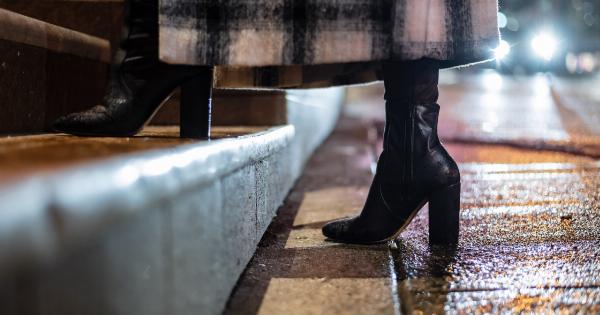Leg cramps are commonly experienced by many people, especially at night. These cramps can be very painful and debilitating, causing sleep disturbances and interfering with regular activities.
Knowing the causes of leg cramps and effective solutions can help prevent the occurrence of these cramps.
Causes of Leg Cramps
There are many causes of leg cramps. Some of the common causes include:.
1. Muscle Fatigue
Muscle fatigue is a common cause of leg cramps. This happens when the muscles are overused causing them to contract involuntarily. Activities that lead to muscle fatigue include prolonged walking or standing, especially on hard surfaces.
Athletes who engage in intense physical activities may also experience muscle fatigue.
2. Dehydration
Dehydration is another common cause of leg cramps. When the body loses too much fluid, it results in an imbalance of electrolytes in the body. This can lead to muscle cramps, especially in the legs.
3. Electrolyte Imbalance
An imbalance in the levels of electrolytes such as sodium, potassium, and magnesium in the body can lead to leg cramps. These electrolytes are essential for the proper functioning of the nerves and muscles in the body.
4. Medications
Some medications such as diuretics, statins, and steroids can cause muscle cramps. These medications interfere with the electrolyte balance in the body, leading to muscle cramps and spasms.
5. Medical Conditions
Some medical conditions such as diabetes, nerve damage, and circulatory problems can cause leg cramps. These conditions affect the normal functioning of the nerves and muscles, leading to muscle cramps and spasms.
Solutions for Leg Cramps
There are several solutions that can help alleviate leg cramps. These include:.
1. Stretching
Stretching the affected muscles can help alleviate leg cramps. Simple stretching exercises such as calf stretches can help release the muscle tension and reduce the frequency of cramps.
2. Hydration
Drinking plenty of fluids can help prevent leg cramps. Staying hydrated helps maintain the proper electrolyte balance in the body, reducing the occurrence of muscle cramps.
3. Electrolyte Supplements
Consuming supplements such as magnesium, calcium, and potassium can help reduce leg cramps. These supplements help restore the electrolyte balance in the body, reducing muscle cramps and spasms.
4. Warm Baths
Warm baths can help relax the muscles and reduce leg cramps. Adding Epsom salt to the bathwater can also help provide relief by restoring the levels of magnesium in the body.
5. Massage
Massaging the affected muscles can help alleviate leg cramps. Massaging the muscles helps release tension and increase blood flow, reducing the occurrence of muscle cramps.
Leg cramps can be a painful and uncomfortable experience. However, knowing the causes and solutions can help alleviate these cramps.
Implementing simple preventive measures such as staying hydrated and stretching can help reduce the occurrence of leg cramps.































